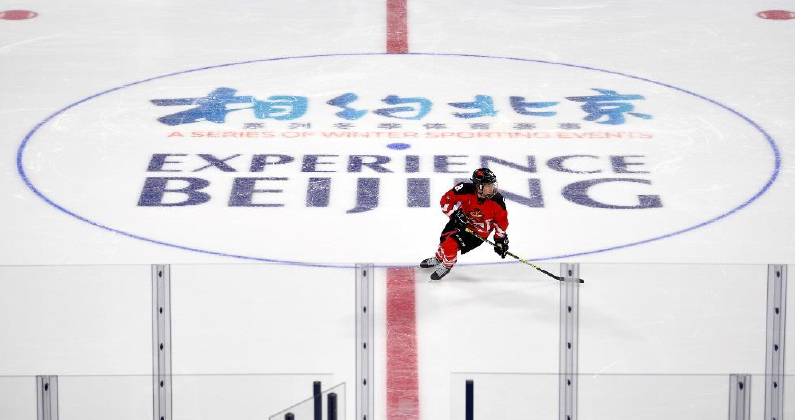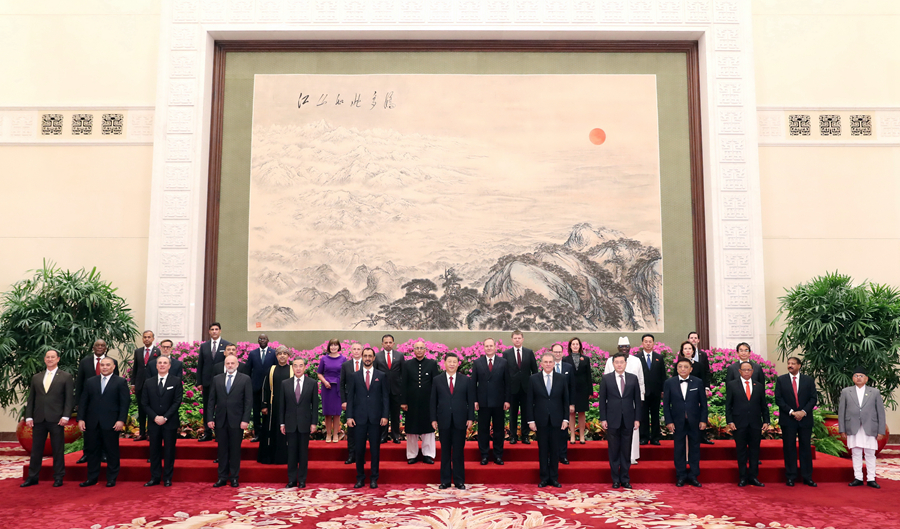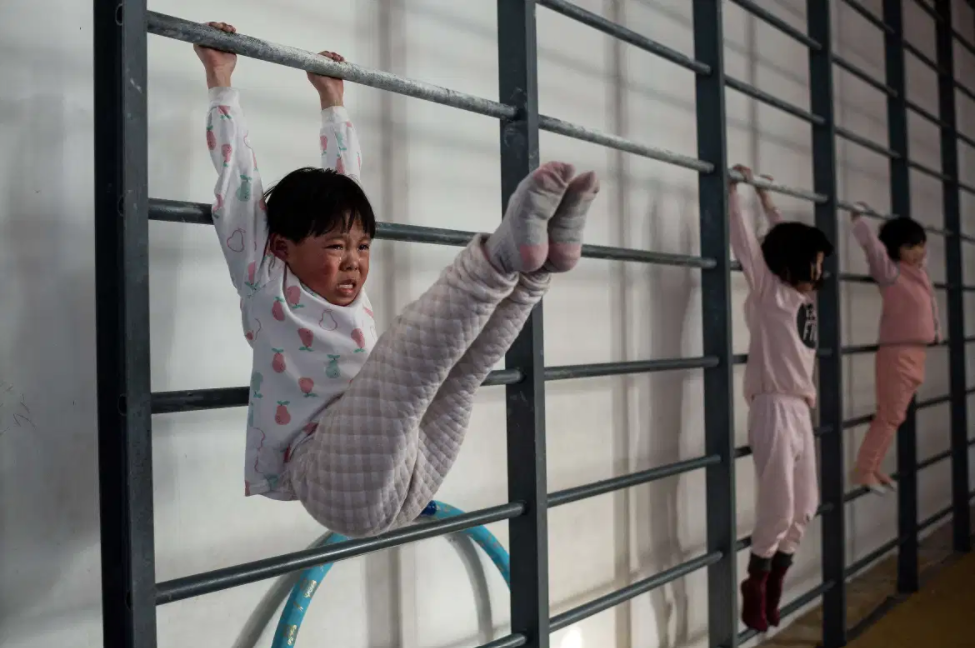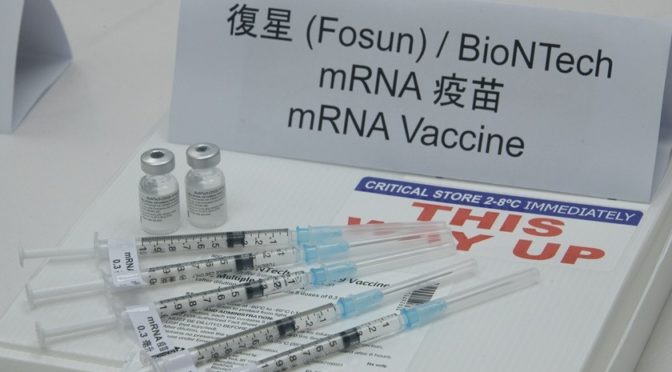There are now just 300 days to go until the Beijing Winter Olympics, but with Tokyo into its final runway – marking 100 days to go this week – the Beijing Olympics are in a bit of a holding pattern. All eyes are now turning towards Japan to see how it handles the Games, and China will no doubt be basing many decisions for 2022 on what happens this summer. But with more concrete news on a possible BioNTech vaccine in China, plus the US backing off its boycott talk – at least for now – it’s certainly been a better week for Beijing Organizing Committee.
Weekly Roundup
- Government set to approve BioNTech vaccine in China
- Test events finish second round
- President Xi pledges “simple, safe and splendid Olympics”
- “Too early” for US to discuss boycott
- More boycott news from around the world
- Other features and stories in the build-up to Beijing 2022
Foreign vaccine looking at July approval in China
The Wall Street Journal broke the news this week that the BioNTech vaccine in China may become a reality “within the next 10 weeks”. The two-dose vaccine is produced and distributed by Pfizer outside of China, but Fosun has exclusive distribution rights in China. In terms of all the foreign vaccines, the BioNTech vaccine has long been the frontrunner to get approval in China, with sources previously mentioning June as the time when this might happen, but this timeline now takes us to the end of July.
Beijing expects the majority of the athletes coming to the games to take the BioNTech shot, according to one of the people briefed on the discussions.
WSJ article, April 16, 2021
The clear impetus for the approval is the Olympics, with athletes keen to come to China as soon as possible to try out the venues and train, ahead of next February. Obviously, in the snow disciplines, this won’t be possible until the start of next winter, and it’s less important for many of the ice sports. But athletes in luge, bobsled and skeleton, for example, are desperate to try out the brand new National Sliding Center in Yanqing (see the video clip below), with practice runs for athletes absolutely crucial ahead of time.
There are still may unanswered questions about how the Games will be handled by China – and what role vaccines may or may not play in the requirements for entry – but approval of the BioNTech vaccine in China would be a good step. The WSJ article saying “the decision depends in part on approvals for Chinese vaccines abroad”, meaning that there are still, as always, many political considerations at play here. But we are inching closer to less a restrictive global travel arrangement, which in regards to the accessibility of Beijing 2022 has to be considered good news.
Test Events Finish Round 2
Following the holding of the “Experience Beijing” tests events for snow and sliding from February 16 to 26, the second round of test events – which included curling, speed skating, short track speed skating, figure skating, ice hockey, Para ice hockey and wheelchair curling – has now concluded.

Beijing will have three main Olympic areas. Round 1 events were held in the Zhangjiakou and Yanqing Competition Zones, while Round 2 activities took place at five competition venues in the Beijing cluster – the National Aquatics Centre, National Indoor Stadium, National Speed Skating Oval, Capital Indoor Stadium and Wukesong Sports Centre.
Xi Pledges “Simple, Safe and Splendid Olympics”
Chinese President Xi Jinping has pledged to hold a successful Winter Olympics next year in Beijing. He told a gathering of ambassadors in Beijing this week, “With the active support and participation of all parties, we’re confident about overcoming the impact of the pandemic and hosting a simple, safe and splendid Olympics.” As is customary, his speech was covered by broadcast by state broadcaster CCTV.

As I wrote in the One Year to Go round-up, it’s a repeat of Beijing’s new messaging for the Olympics, scaled down the original “fantastic and extraordinary”. Representatives from 29 countries plus the UN attended the gathering this week. Interestingly, none of the top 10 nations from Pyeongchang 2018 – Norway, Germany, Canada, the US, the Netherlands, Sweden, South Korea, Switzerland, France and Austria – were present.
“Too early” for US to Discuss Boycott
US Secretary of State Antony Blinken now says it is “premature” to discuss a boycott of the Beijing Winter Olympics – the latest in a string of related comments coming out of the US State Department. Last week, spokesperson Ned Price had said that the US was keen to discuss a boycott with its allies, before backing off those comments.
Blinken told NBC’s Meet the Press that his focus is now on ensuring that US companies are not providing China with things that could be used for repression in the Xinjiang region, saying “We need to be looking at products that are made in that part of China to make sure that they’re not coming here; but we also have to make sure that we are dealing with all of our interests, and what is the best way to effectively advance our interests and our values.”
Boycott Watch
For the first time in weeks, the pendulum has started to swing back away from threats of a boycott. In addition to Blinken’s comments above, the FT’s editorial board states “Boycotting Beijing 2022 is not the answer“, arguing that there are other ways to take a stand, while the AP’s sports columnist Tim Dahlberg argues “Olympic boycott chatter shouldn’t go any further“, citing Edwin Moses as among those vehemently opposed to a boycott.
Meanwhile, the LAist takes a local view in “The Impact Of A Potential China Olympic Games Boycott On LA’s Economy“. Elsewhere, Gal Luft, co-director of the Institute for the Analysis of Global Security (IAGS) writes in the SCMP that “a meaningless Western boycott would only prove US weakness“, while Rick Burton, professor of sport management at Syracuse University, told Bloomberg that the US won’t boycott the Beijing Olympics in 2022.
The Washington Post has established itself as the most hardline of the boycott promoters and naturally has some more contrary views. Meanwhile, New York Times sports columnist Kurt Streeter says “It’s Time to Rethink the Olympics” more generally. But the boycott talk has eased up somewhat – at least for now – which is certainly a relief.
See also: Games boycott would be a repudiation of Beijing [FT], A Strong U.S. Response to the 2022 Winter Olympics in Beijing [Heritage Foundation], What can a boycott of the Beijing 2022 Winter Olympics achieve? [Quartz]
Other Stories and Links

- The Chinese gymnastics school training children for Olympic glory [Al Jazeera/AFP]
- China’s Liechtensteiner luge coach encouraged as Beijing 2022 approaches [insidethegames]
- Karen Chen eyes Beijing and triple axel as figure skating season comes to an end [Mercury News]
See also:
- 43 Weeks To Go: Ping Pong Diplomacy & Canadian’s Chinese Dream
- 44 Weeks To Go: Test Events, Nike Reprieve & Chengdu Postponement
- 45 Weeks To Go: To Watch or Not To Watch?
- 46 Weeks To Go: Romney Speaks Out & Vaccine Spin
- 47 Weeks To Go: Vaccine Diplomacy & Fading Medal Hopes
To keep up-to-date with all the latest news from China Sports Insider, please click on the “SUBSCRIBE” button in the top right corner of this page (or see below on mobile version or click here from email version). Also follow along on Twitter for regular updates.


